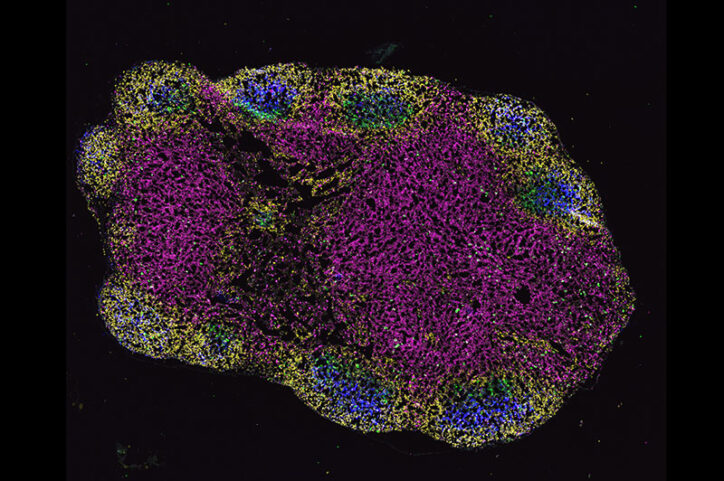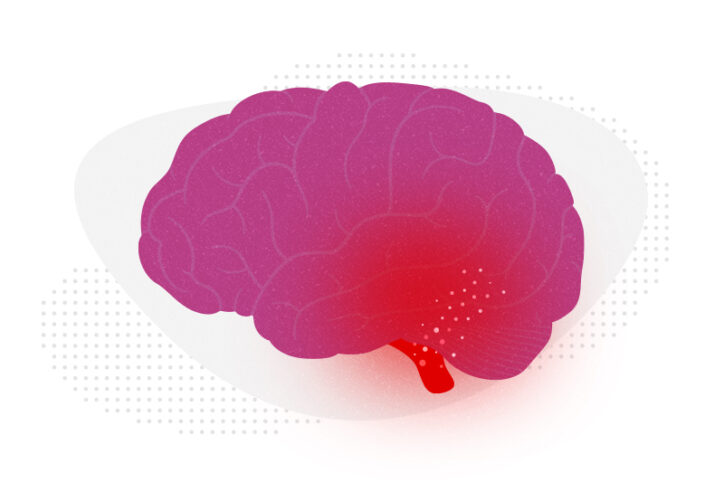Archive for infectious diseases
No limitations: How Flora found answers for MOG antibody disease
Flora Ringler’s fifth birthday didn’t turn out as she had hoped. She and her family were vacationing in New Hampshire last year when she started feeling tired. But she wasn’t just worn out from celebrating: She also developed a bad headache and started throwing up. Concerned, her mom, Maureen, contacted a pediatrician, who thought she ... Read More about No limitations: How Flora found answers for MOG antibody disease
What orthopedic trauma surgeons wish more parents knew about lawnmower injuries
Summer is full of delights: lemonade, ice cream, and fresh-cut grass to name a few. Unfortunately, the warmer months can also come with a type of injury that takes many families by surprise. Mowing the lawn may seem perfectly normal and safe. However, the blades that cut the grass can also do serious damage to ... Read More about What orthopedic trauma surgeons wish more parents knew about lawnmower injuries
Partnering diet and intestinal microbes to protect against GI disease
Despite being an everyday necessity, nutrition is something of a black box. We know that many plant-based foods are good for us, but we don’t always know why. Our intestinal microbiome, which helps break down these foods once we consume them, is another black box. What role do our gut bacteria play? Seth Rakoff-Nahoum, MD, ... Read More about Partnering diet and intestinal microbes to protect against GI disease
‘They never stopped trying to figure out what was happening’: RyennAnne’s encephalitis journey
When 5-year-old RyennAnne Hurst developed a bad sore throat last summer, her doctor thought she might have strep and prescribed her antibiotics. But two weeks later, she wasn’t feeling any better. In fact, she was lethargic and her head hurt. “She told us it felt like something was smashing into the right side of her ... Read More about ‘They never stopped trying to figure out what was happening’: RyennAnne’s encephalitis journey
A surprising link between Crohn’s disease and the Epstein-Barr virus
Crohn’s disease, a debilitating inflammatory bowel disease, has many known contributing factors, including bacterial changes in the microbiome that foster an inflammatory environment. Now, for the first time, Crohn’s disease been tied to a virus — specifically, Epstein-Barr virus (EBV), best known for causing infectious mononucleosis (mono). Researchers had already observed increased levels of EBV ... Read More about A surprising link between Crohn’s disease and the Epstein-Barr virus
Model enables study of age-specific responses to COVID mRNA vaccines in a dish
mRNA vaccines clearly saved lives during the COVID-19 pandemic, but several studies suggest that older people had a somewhat reduced immune response to the vaccines when compared with younger adults. Why? Researchers at Boston Children’s Hospital, led by Byron Brook, PhD, David Dowling, PhD, and Ofer Levy, MD, PhD, found some answers — while providing ... Read More about Model enables study of age-specific responses to COVID mRNA vaccines in a dish
Tagged: coronavirus, immunology, infectious diseases, vaccines
Creating the next generation of mRNA vaccines
During the COVID-19 pandemic, mRNA vaccines came to the rescue, developed in record time and saving lives worldwide. Researchers in the Precision Vaccines Program at Boston Children’s Hospital have developed two novel technologies that could make these and future mRNA vaccines more potent and longer-lasting — at smaller doses and with fewer side effects. The ... Read More about Creating the next generation of mRNA vaccines
Tagged: coronavirus, immunology, infectious diseases, vaccines
Tracking influenza in its first battleground: The nose
The answer to curbing influenza could be right under our noses — or, more accurately, inside them. New research maps happenings in the nose during the course of influenza in exquisite detail, and could potentially lead to new targets and more effective nasal flu vaccines. The nose is often the gateway to respiratory infections, where ... Read More about Tracking influenza in its first battleground: The nose
Building better antibodies, curbing autoimmunity: New insights on B cells
When we’re vaccinated or exposed to an infection, our B cells spring into action, churning out antibodies that are increasingly potent, specific, and protective. This happens through an iterative process known as affinity maturation. Two labs at Boston Children’s Hospital have come up with different ways to enhance affinity maturation and help B cells make ... Read More about Building better antibodies, curbing autoimmunity: New insights on B cells
Could SIDS be caused by unrecognized brain infections?
Some infants who pass away from sudden infant death syndrome (SIDS) are known to have had acute minor infections. Could these have played a role in their death? Using next-generation molecular tools, a new study provides evidence that undiagnosed inflammation and occult infection can contribute to SIDS and the brainstem pathology seen in some infants. ... Read More about Could SIDS be caused by unrecognized brain infections?











